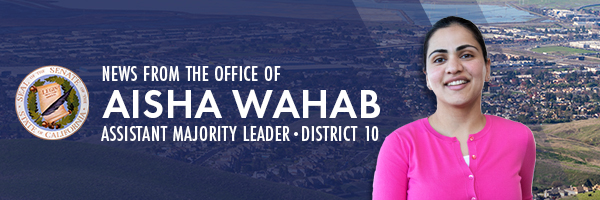
Tech workers claimed caste bias. Now California could make it illegal.
The Washington Post | Analysis by Nitasha Tiku with research by David DiMolfetta
California state Sen. Aisha Wahab (D) will introduce a new bill Wednesday aiming to add caste as a protected category to state law, making discrimination against a person based on their caste explicitly illegal.
The move follows efforts by tech workers, first reported in The Washington Post, to highlight bias they faced within U.S. tech companies based on caste, a system of social hierarchy that dictates a person’s standing at birth.
In Silicon Valley, where a significant portion of employees and contractors are South Asian, workers have grown increasingly vocal about caste discrimination in recent years. They’ve been buoyed by Equality Labs, a nonprofit group advocating for Dalits, members of the lowest-ranked caste formerly referred to as “untouchables.”
Though caste has its roots in Hinduism in India, it has proliferated to other religions and across South Asia. In the United States, some South Asians say they face caste bias at work, school and places of worship from other members of the diaspora.
Wahab is spearheading the bill because caste bias affects her constituents, she said, pointing to high-profile instances that originated in her district, which includes parts of Silicon Valley and the East Bay.
The bill follows efforts by other institutions to identify and address caste bias in existing policies.
California State University added caste to its anti-discrimination policy after allegations of caste bias at its East Bay location, Wahab said. And California’s Department of Fair Employment and Housing filed a landmark lawsuit against Cisco alleging caste discrimination at the company’s headquarters in San Jose.
But early policy efforts to enshrine caste as a protected category within the United States have been met with social media attacks and lawsuits. After Seattle, Washington became the first city to ban caste discrimination in February, Indian American Ohio state Sen. Niraj Antani (R) condemned the ordinance as “Hindu-phobic.” In October, two Hindu professors filed a lawsuit against Cal State for adding caste to its anti-discrimination policy.
The professors were represented by the Hindu American Foundation, a D.C.-based group that has helped coordinate pushback against efforts to raise awareness around caste, which HAF says unfairly targets Hinduism.
A group of 30 female engineers who worked at Google, Apple, Microsoft and other tech companies shared a statement with The Post in 2020 about caste bias they faced in the U.S. tech sector. The Post broke the story in June that a senior manager in Google News, Tanuja Gupta, resigned after Google canceled a talk about caste discrimination by Equality Labs founder and executive director, Thenmozhi Soundararajan.
Soundararajan had already delivered a similar talk at an earlier Google conference, as well as for other tech companies. But after backlash from some South Asian employees, who claimed reverse discrimination and said supporting Dalit rights was “Hindu-phobic,” Google canceled the talk.
Both Gupta and Soundararajan advocated for the bill and will join Wahab at a news conference Wednesday in Sacramento. Soundararajan told The Post, pushing for caste to be defined as a protected category, which workers have said is necessary, has been a way for her to “turn pain into power,” after the incident with Google.
The bill is also supported by a broad coalition that includes a newly public group called Tech Workers for Caste Equity, which describes itself as an interfaith, multiracial, inter-caste collective dedicated to class equity.
Even though caste is already implicitly covered by existing statutes, as the DFEH argued in its case against Cisco, American employers may be confused or choose to ignore caste bias because it is happening within an ethnic group.
The nuances of caste discrimination may not be widely understood or mainstream, but as California grows increasingly diverse, its policies need to stretch out and protect more people, Wahab said.
Wahab said that as an Afghan American woman, she is particularly sensitive to the way non-Christian faiths are depicted, perceived and discussed. However, she emphasized, “This has nothing to do with religion.”
“I am not legislating anyone’s personal practice of their faith or what happens in their places of worship,” she said. “This is about ensuring caste discrimination does not further entrench itself in our workplaces and education system.”